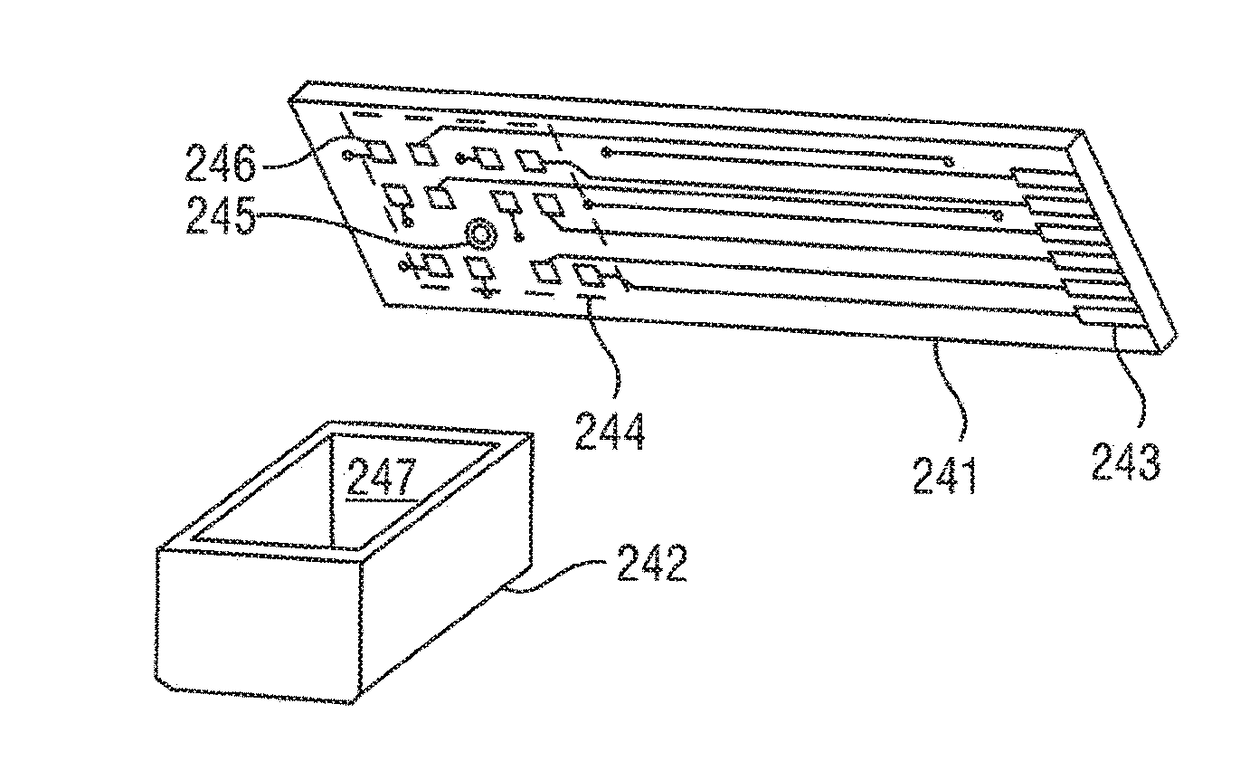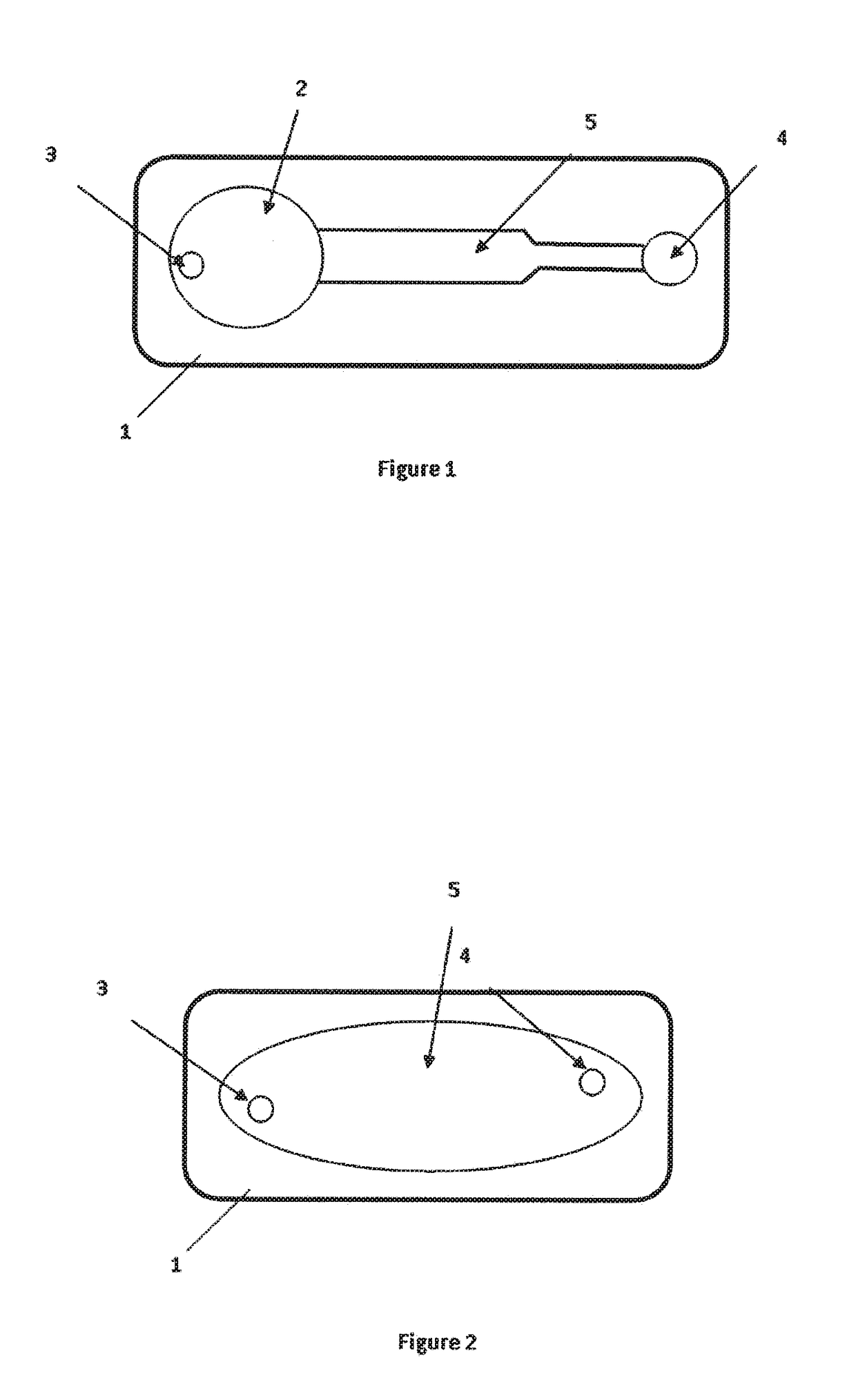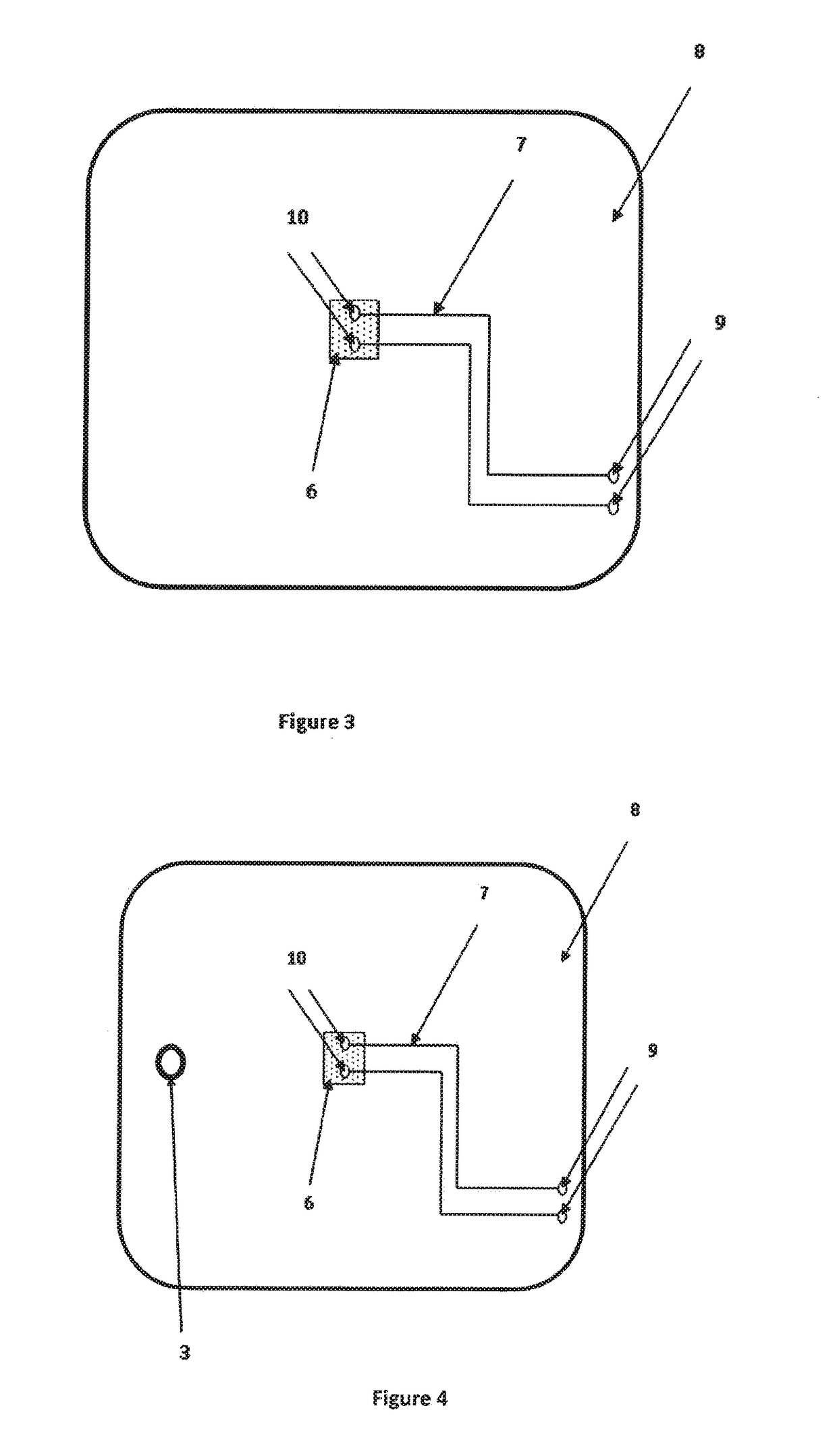Detection device to identify markers dissolved in a liquid by means of a measurement of resistivity variation, detection method and use of marker and detection device
a detection device and resistivity variation technology, applied in the detection of reactive molecules, material thermal analysis, biochemistry apparatus and processes, etc., can solve the problems of limiting the applicability of markers in various applications, difficult processing, poor stability, etc., and achieves easy identification, good solubility, and low cost.
- Summary
- Abstract
- Description
- Claims
- Application Information
AI Technical Summary
Benefits of technology
Problems solved by technology
Method used
Image
Examples
Embodiment Construction
[0166]The inventors performed several experiments in order to identify suitable de-dopant molecules (markers) and to assess the sensitivity and accuracy of the method / device. The markers evaluated in the experiments on different conductive polymeric formulations are listed in table 1 and 2; and the further possible markers suitable for the application to carry out the invention are listed in table 3.
[0167]In parallel, the influence of the insulating polymer on the absorption of the marker in the fuel has been evaluated. The insulating polymer strongly influences the ability of the conductive polymer to decrease its conductivity. The inventors prepared and studied different polymeric formulations listed in table 4. The markers listed in table 1 have been tested depositing a 2 μl drop on the conductive polymer which is positioned as a path (or “bridge” which does not need to be suspended over any substrate) between two conductive pads present on a PCB having a distance of 1 mm. The el...
PUM
| Property | Measurement | Unit |
|---|---|---|
| Fraction | aaaaa | aaaaa |
| Fraction | aaaaa | aaaaa |
| Fraction | aaaaa | aaaaa |
Abstract
Description
Claims
Application Information
 Login to View More
Login to View More - R&D
- Intellectual Property
- Life Sciences
- Materials
- Tech Scout
- Unparalleled Data Quality
- Higher Quality Content
- 60% Fewer Hallucinations
Browse by: Latest US Patents, China's latest patents, Technical Efficacy Thesaurus, Application Domain, Technology Topic, Popular Technical Reports.
© 2025 PatSnap. All rights reserved.Legal|Privacy policy|Modern Slavery Act Transparency Statement|Sitemap|About US| Contact US: help@patsnap.com



